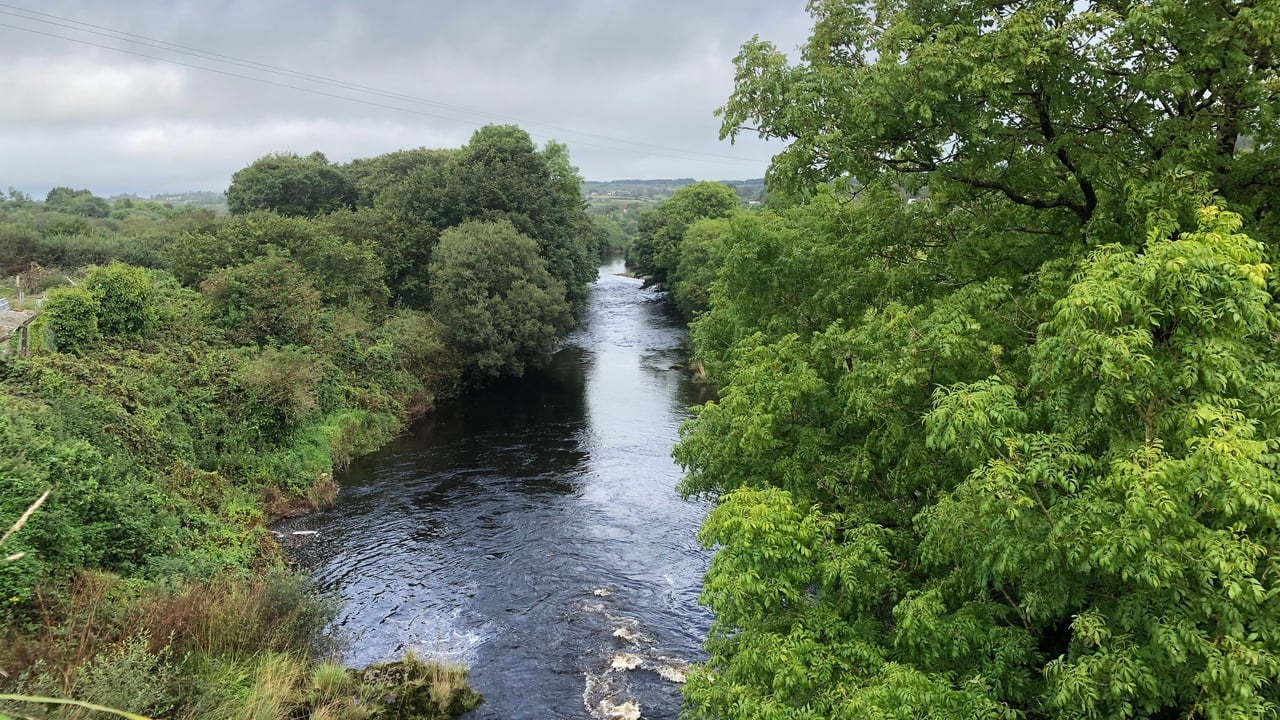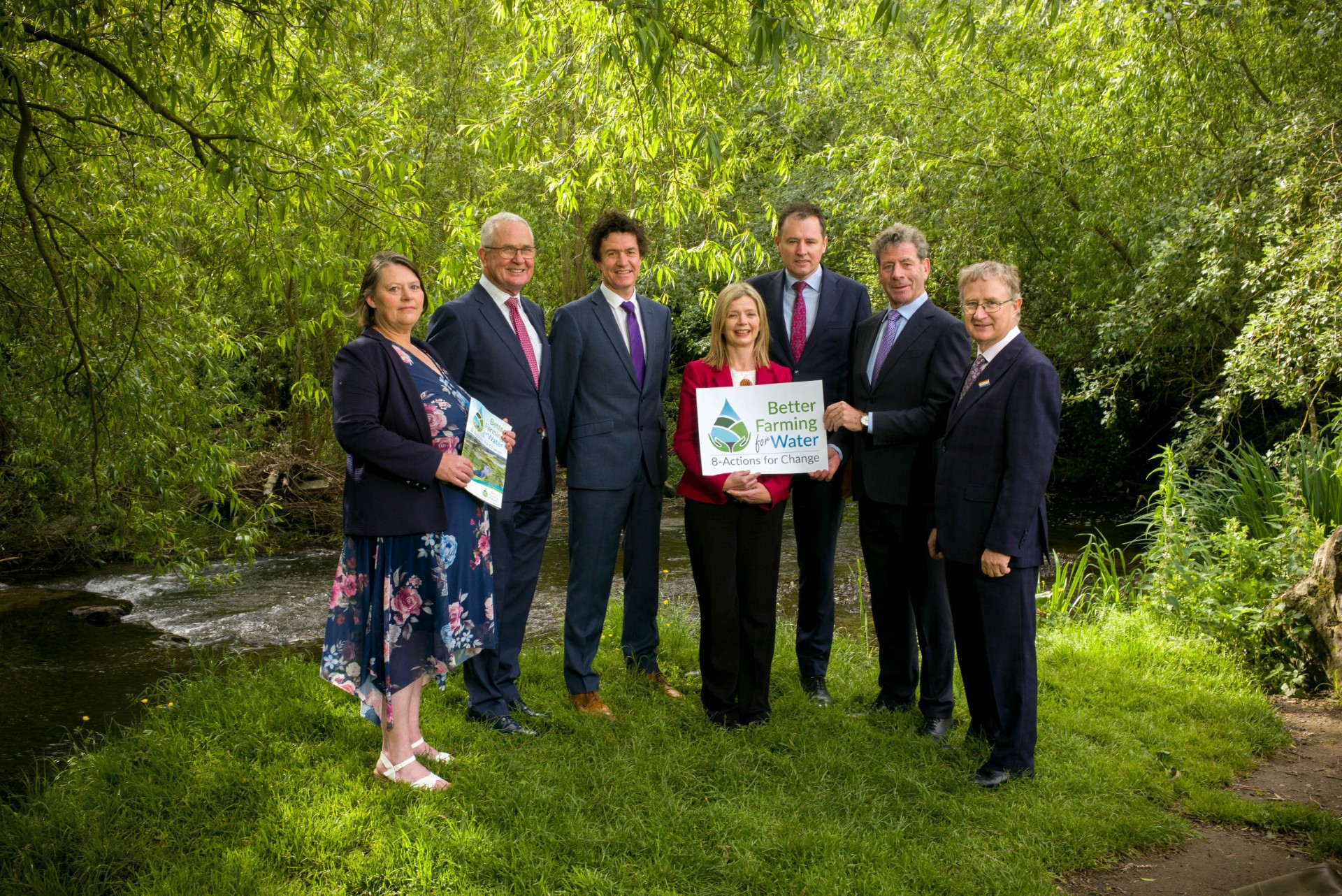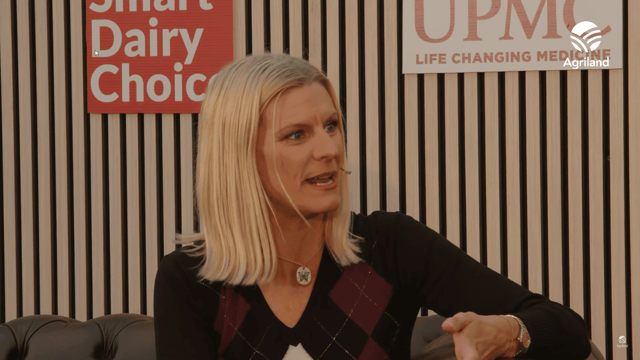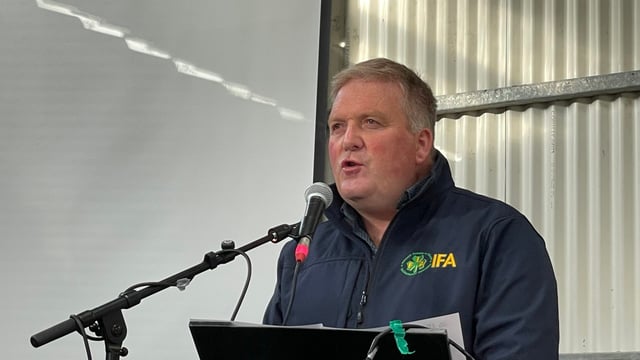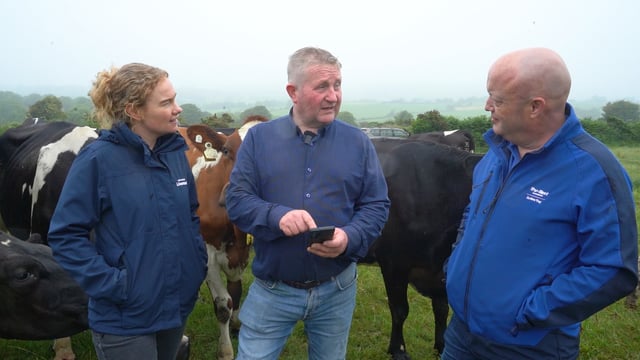Seven-year 'Better Farming for Water' campaign launched
Teagasc has today (Thursday, May 30) launched the ‘Better Farming for Water’ campaign which aims to support farmers to reduce the loads of nitrogen, phosphate, sediment and pesticides entering Ireland's river network.
The campaign includes eight actions, which involve better nutrient, farmyard and land management, and provides a "structured" and "relatable" approach for farmers to effectively engage with improving water quality.
The aim of the Better Farming for Water campaign is to support and accelerate the adoption of actions on all farms to improve all water bodies (where agriculture is a significant pressure) to "good" or "high" ecological status.
The seven-year (2024-2030) multi-actor campaign focuses on improving water quality in Ireland, and will support the active participation of all farmers, agri-food industries, local communities, advisors/researchers, and government stakeholders.
The eight actions of the campaign aim to:
- Reduce purchased nitrogen (N) and phosphorus (P) surplus per hectare;
- Ensure soil fertility is optimal for lime, P and potassium (K);
- Ensure application of fertiliser and organic manure at appropriate times and conditions;
- Have sufficient slurry and soiled water storage capacity;
- Manage and minimise nutrient loss from farmyards and roadways;
- Fence off watercourses to prevent bovine access;
- Promote targeted use of mitigation actions such as riparian margins, buffer strips and sediment traps to mitigate nutrient and sediment loss to water;
- Maintain over-winter green cover to reduce nutrient leaching from tillage soils.
The campaign, which is part of a wider whole-of-government approach to improve water quality, will instill "confidence" that the actions undertaken will result in "sustained, positive improvements" in water quality, Teagasc said.
Teagasc has been requested by Minister for Agriculture, Food and the Marine, Charlie McConalogue to lead a multi-actor water quality advisory campaign to deliver simple and positive messaging to enhance farmers’ and the agri-food industry’s understanding of the agriculture pressures on water quality and the need for improvement.
A multi-actor approach, including farmers, advisors/researchers, the agri-food industry, community, and the government, will ensure that challenges and solutions to address local water quality are delivered at farm, catchment and regional scale, Teagasc said.
The Better Farming for Water campaign will be delivered by way of six key pillars:
- Stakeholder engagement through a multi-actor approach;
- Building awareness by acquisition and utilisation of water quality data;
- Upskilling farmers, students, advisors, teachers and industry professionals;
- An impactful Knowledge Transfer (KT) programme;
- A supporting research programme to identify and develop effective mitigation actions;
- A strong communications plan with the target audiences.
The impacts deliverable through this campaign, Teagasc said, are enhanced farmer knowledge of local water quality and pollution pressures; a reduction in nutrient, sediment, pesticide and pathogen loss to water bodies; and an improvement in the ecological status of rivers with agriculture as significant pressure.
The campaign will build on existing water quality programmes such as the Agricultural Catchments Programme (ACP); the Agri-Climate Rural Environment Scheme (ACRES); the Agricultural Sustainability Support and Advisory Programme (ASSAP); the Farming for Water European Innovation Partnership (EIP); Waters of LIFE; Blue Dot Catchments Programme; and the Slaney project.
"This campaign and plan reinforces the vital collaboration necessary between advisors, farmers and government working towards one ambition - to ensure a sustainable agricultural sector for future generations.
"This is just one element of the collaborative approach that I am leading on to improve water quality and maintain Ireland’s nitrates derogation," Minister McConalogue said speaking at the launch today.
Teagasc director, Prof. Frank O'Mara said the buy-in from farmers, industry and the other stakeholders in the agri-sector, combined with a determination to succeed, gives him "confidence" that progress will be made on water quality.

